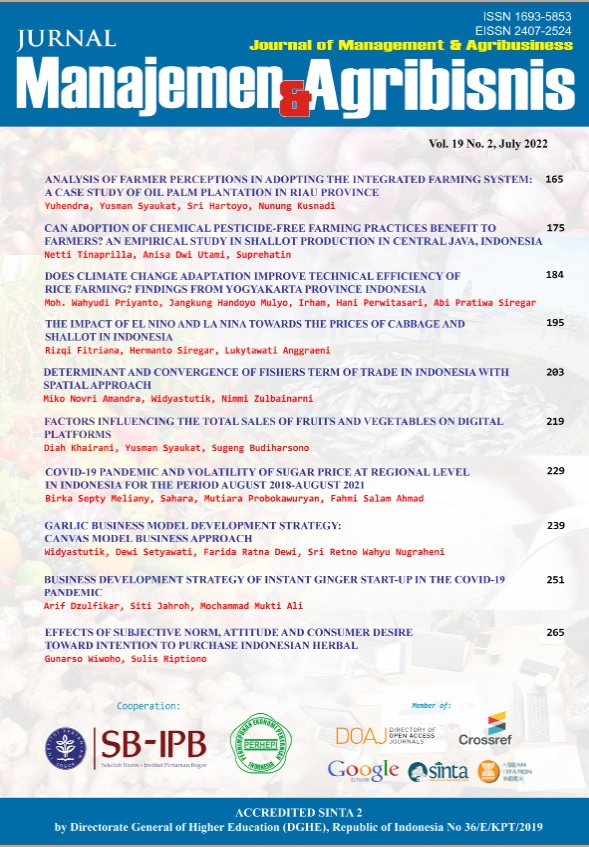Determinants and Alternative Strategies in Improving The Financial Performance of Sharia Commercial Banks in Indonesia
Abstract
This study is to examine the impact of internal and external factors on the profitability of Islamic commercial banks and to provide suitable solutions for enhancing their financial performance. This study utilizes original data collected from Islamic banking specialists that have experience, professionalism and a proven track record, as well as are true experts in their disciplines. Secondary data are gathered from the Financial Services Authority's (OJK) annual report on the financial performance of Islamic banks in Indonesia for the period 2013-2020 and 2013-2020 macroeconomic data. Using qualitative descriptive, panel data regression, and Analytical Hierarchy Analysis (AHP), the data were evaluated. The results of the study indicate that Bank Muamalat is the bank with the worst performance, whereas BTPN Syariah is regarded as the most outstanding since it is the sharia bank with the best performance. Only BOPO and FDR have a substantial impact on the profitability of Islamic Commercial Banks (ROA), with BOPO having a negative impact and FDR having a favorable impact. Inflation and the BI Rate have no substantial impact on profitability as external factors. As the primary approach, Sharia commercial banks must improve services and develop business segmentation based on risk tolerance. Trust and capital are the most crucial aspects in the success of this strategy. Directors as top-level managers play a crucial role in setting the direction of business policies and objectives, whereas employees play a part in the successful implementation of strategies. The ultimate objective of this strategy is to enhance consumer confidence and maximize profitability.
Keywords: analytical hierarchy process (AHP), financial performance, financial service authority (OJK), islamic banking and profitability
Authors
Authors who publish with this journal agree to the following terms:
- Authors retain copyright and grant the journal right of first publication with the work simultaneously licensed under a Creative Commons Attribution License that allows others to share the work with an acknowledgement of the work's authorship and initial publication in this journal.
- Authors are able to enter into separate, additional contractual arrangements for the non-exclusive distribution of the journal's published version of the work (e.g., post it to an institutional repository or publish it in a book), with an acknowledgement of its initial publication in this journal.
- Authors are permitted and encouraged to post their work online (e.g., in institutional repositories or on their website) prior to and during the submission process, as it can lead to productive exchanges, as well as earlier and greater citation of published work (See The Effect of Open Access).

